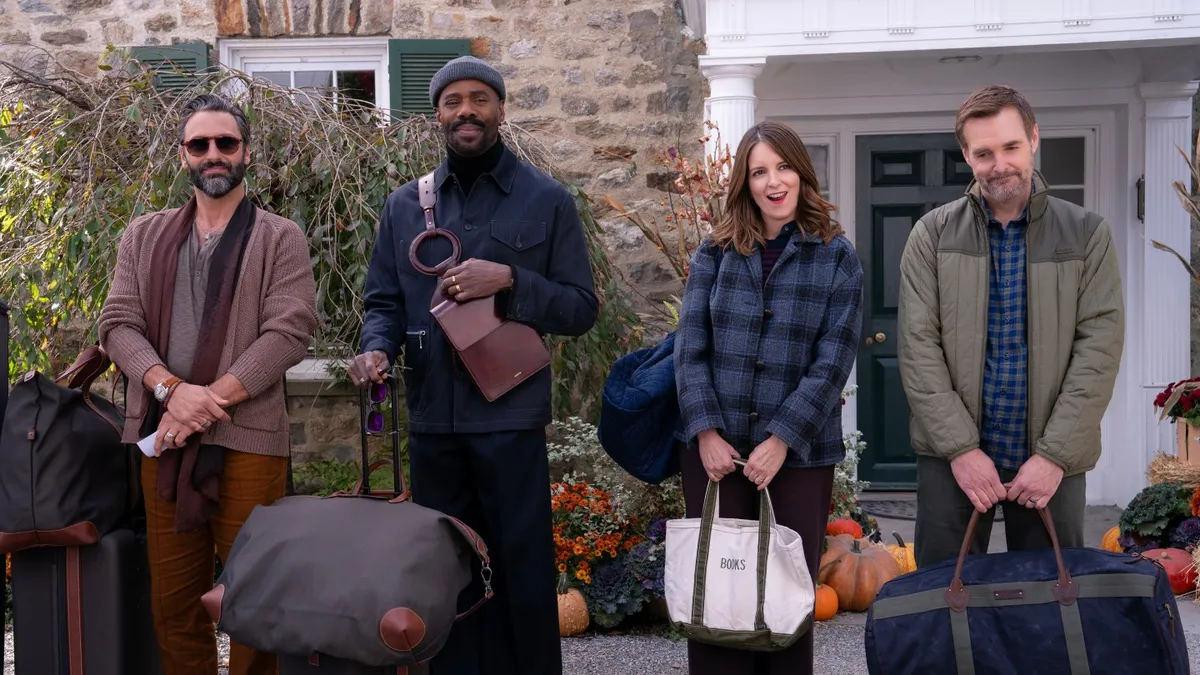
In the much-anticipated third season of HBO’s The White Lotus, viewers are introduced to a trio of childhood friends who, upon arriving at their destination, reveal a palpable tension among them. These 40-something friends engage in passive-aggressive exchanges and gossip, painting a picture of discord from the outset. Yet, as the week progresses, one friend reflects on their shared past, expressing a heartfelt sentiment: “We started this life together. I mean, we’re going through it apart. But we’re still together,” she shares. “And I look at you guys, and it feels meaningful.” This poignant moment resonates with audiences, emphasizing the complexity of long-term relationships.
In contrast, Tina Fey’s new Netflix series The Four Seasons, inspired by Alan Alda’s 1981 film, showcases a different group of unhappy friends who also struggle to connect. Despite spending time together on four group vacations each year, it is evident that their relationships lack genuine enjoyment. The series raises questions about the value of shared history, suggesting that it may be the only reason these friends continue to gather despite their evident discomfort with one another.
While the friendships among the three couples may appear stable, it is their marriages that are on a collision course with disaster. Nick, played by Steve Carell, harbors a secret that he is poised to reveal during a weekend getaway at a lake house celebrating his 25th anniversary with Anne, portrayed by Kerri Kenney-Silver. Unknown to the group, Nick has already decided to leave Anne, a revelation that disrupts the fragile dynamics of their circle. The series unfolds over three additional trips, including a summer vacation at an eco-friendly lodge, a fall visit to a Vassar College parents’ weekend, and a New Year’s Eve ski retreat, compelling the couples to confront the cracks in their own relationships.
The Four Seasons boasts a noteworthy cast, including Tina Fey as the uptight Kate, Will Forte as her anxious husband Jack, Colman Domingo as her cool best friend Danny, and Marco Calvani as Danny’s fretful husband, Claude. Fey not only stars but also co-created the series alongside Tracey Wigfield and Lang Fisher, whose credentials include popular shows like NBC’s Great News and Netflix’s Never Have I Ever. Despite the impressive lineup, the initial episodes directed by Oscar nominees Shari Springer Berman and Robert Pulcini fail to leave a significant impact.
Each episode opens with seasonal visuals, accompanied by Vivaldi’s concertos, yet this artistic choice does little to elevate the overall experience. While The Four Seasons doesn’t aim for the layered humor of Fey’s earlier works like 30 Rock, it suffers from a lack of the sharp wit and unique pacing that characterized those series. Instead, viewers are treated to a series of mundane moments that often feel forgettable. Although there are a few standout lines – such as Nick’s metaphorical comparison of his marriage to coworkers at a nuclear facility – the humor largely falls flat.
While the friendships are portrayed as strained, the marriages are depicted as teetering on the edge of collapse. Characters like Danny and Kate come off as one-dimensional, enveloped in their mutual cynicism, while their husbands present their own exhausting traits. Nick embodies a typical midlife crisis with clichéd tropes, while his wife Anne, portrayed by Kenney-Silver, provides a more nuanced performance, capturing the emotional turmoil of a woman caught between despair and hope.
Ultimately, The Four Seasons attempts to deliver an honest examination of marriage, exploring the repetitive nature of long-term relationships. However, the focus on recurring conflicts among the couples becomes tiresome, overshadowing any positive moments. The series concludes on an unconvincing romantic note, leaving viewers with a sense of dissatisfaction. With only four hours of content, I find myself willing to categorize The Four Seasons as a forgettable entry in the realm of streaming television, ready to move on to more engaging stories that better explore the complexities of friendship and marriage.